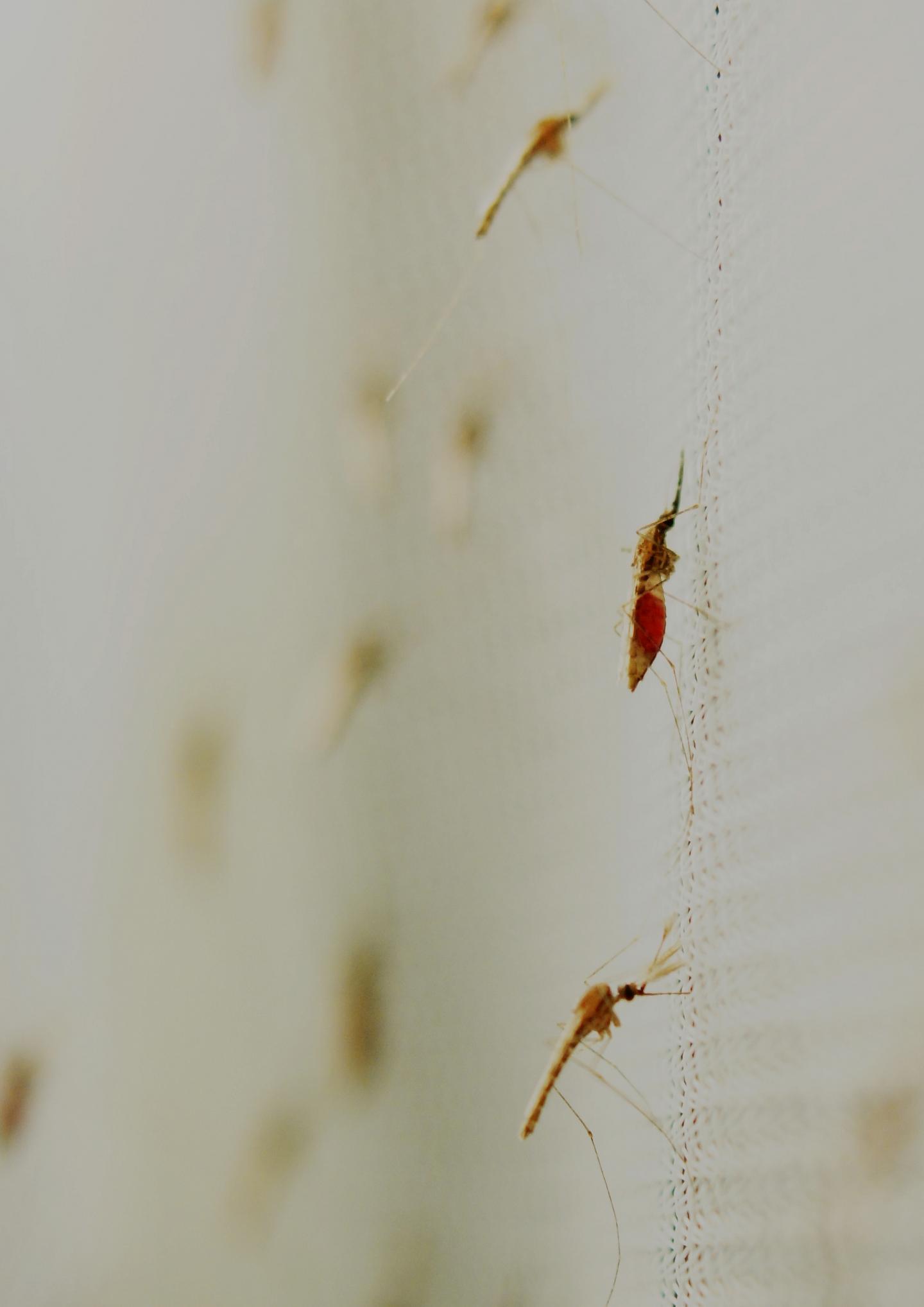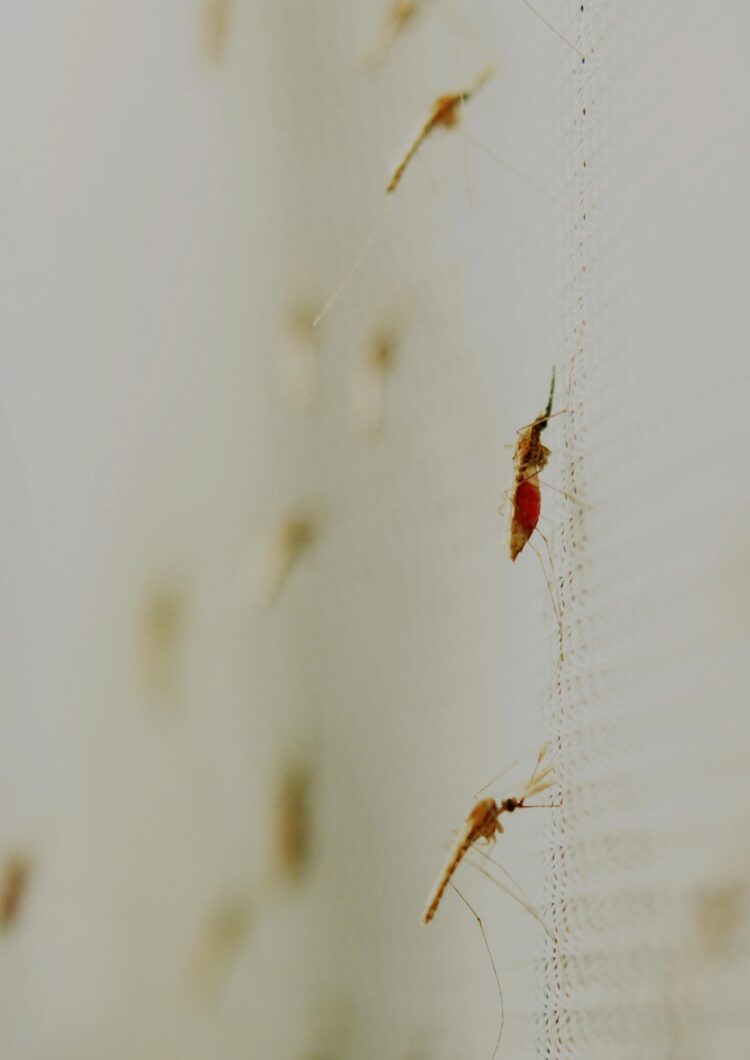
Credit: Eunho Suh, Penn State
UNIVERSITY PARK, Pa. — Wide-scale use of insecticide-treated bed nets has led to substantial declines in global incidences of malaria in recent years. As a result, mosquitos have been shifting their biting times to earlier in the evening and later in the morning. In a new study, an international team of researchers has found that mosquitoes are most likely to transmit malaria in the early evening, when people are exposed, then at midnight, when people are protected by bed nets, or in the morning. The findings may have implications for malaria prevention initiatives.
“Wide-scale use of insecticide-treated bed nets has led to substantial declines in the global burden of malaria in recent years; however, evidence from a number of locations suggests that mosquitoes might be changing their biting behavior in order to avoid contact with these nets,” said Matthew Thomas, professor and Huck Scholar in Ecological Entomology, Penn State. “This so-called ‘behavioral resistance’ could have enormous implications for public health because if more mosquitoes feed in the evening or the morning, the protective efficacy of nets could be reduced.”
The team conducted a series of laboratory studies to examine whether timing of feeding affects a mosquito’s ability to become infectious with the malaria parasite. They presented the two most important malaria mosquitoes — Anopheles stephensi and Anopheles gambiae — with infected blood meals at different times of day and under different temperature conditions and monitored them to determine their “vector competence” — the ability to successfully acquire malaria parasites and become infectious. The results appear today (May 4) in Nature Ecology and Evolution.
The researchers found that time-of-day of feeding did not affect vector competence when the temperature was maintained at a constant 80°F. However, when mosquitoes were maintained under conditions representing more realistic temperature variation — ranging from a few degrees above and below 80°F — there was significant variation in vector competence, with approximately 88% of evening biters, 65% of midnight biters and 13% of morning biters testing positive for parasites in Anopheles stephensi mosquitoes. For Anopheles gambiae, 55% of evening biters, 26% of midnight biters and 0.8 % of morning biters were positive for parasites.
“Warm temperatures can inhibit parasite establishment, so the longer the time before mosquitoes are exposed to warm daytime temperatures, the better the chances that the mosquito becomes infected,” said Eunho Suh, postdoctoral scholar, Penn State. “Mosquitoes feeding in the morning have only 4 hours before temperatures become too hot for the parasite to be transmitted, while those that feed in the evening have 16 hours of cooler temperatures.”
Thomas added that many studies have investigated malaria infection in mosquitoes in lab settings, but this work has tended to ignore the possible influence of environmental factors such as time of day and temperature variation.
“It is really striking that when you add this ecological complexity, plus or minus six hours in the time of feeding can transform a mosquito from being extremely susceptible to infection by malaria to becoming almost completely refractory,” he said.
Next, the researchers created a mathematical model to explore the potential public health implications of a change in mosquito infectivity driven by the timing of mosquito bites. The model results support their laboratory findings.
“There is major concern that shifts in patterns of mosquito feeding could reduce the effectiveness of bed nets, which are our most important tool in the fight against malaria,” said Thomas. “Key next steps are to extend the work to field systems to evaluate the robustness of the findings in the real world.”
###
Other authors on the paper include Marissa Grossman, postdoctoral scholar, Penn State; Jessica Waite, Penn State research technologist, now scientific project manager at Green Mountain Antibodies; Nina Dennington, graduate student, Penn State; Ellie Sherrard-Smith, research fellow, Imperial College London; and Thomas Churcher, senior lecturer, Imperial College London.
The National Institutes of Allergy and Infectious Diseases and the National Science Foundation’s Ecology and Evolution of Infectious Diseases program supported this research.
Media Contact
Sara LaJeunesse
[email protected]
Related Journal Article
http://dx.





